The annual meeting of the Conference of Visitors of Europe and Middle East (CEVIM) began at the Provincial House of the CM Province of Orient, on Monday, April 9, and ended on Friday, April 13.
Participants of the meeting were regular members of the Conference (13 Visitors from Europe and Middle East and the Executive Secretary), Fr. Javier Álvarez, Vicar General and Fr. Miles Heinen, Assistant General. Additionally five interpreters secure simultaneous translation in five languages: English, French, Italian, Polish and Spanish.
Day One:
At the beginning of the opening session the Chairman of the meeting greeted all participants. Next, three main topics were reported. (1) Fr. Nicola Albanesi, Provincial of Italy presented the project of interprovincial European and Middle Eastern Theologate. (2) Fr. Christian Mauvais, Provincial of France, reported on upcoming encounter of European seminarians which is taking place this August in Villebon, near Paris, France. Finally, (3) Frs. Giuseppe Turati and Abdo Eid, former and current Executive Secretaries of CEVIM reported on Conference’s official website which was recently closed according to conclusions from last year meeting.
In the afternoon participants paid a visits to Apostolic Nuntiature in Lebanon and the 77th Patriarch of Antioch for All-Christians of Maronite Rite Patriarch Moran Mor Bechara Boutros al-Rahi who is in this position since March 15, 2011, succeeding Patriarch Nasrallah Boutros Sfeir. Guests were welcomed very and given a rich presentation about peculiarity of relations between the State and Religions in Lebanon.
In the evening they watched the performance of a musical based on five scenes from the life of St. Vincent organized by Fr. Ziad Haddad, Provincial of the Province of Orient in the church of Miraculous Medal in Achrafié.
Day Two and Three:
On Tuesday (April 10), the morning session was dedicated to the themes of trends of contemporary Islam and new theological approach to Islam. Dr. Nayla Tabbara, Director of the Institute of Citizenship and Diversity Management was the lecturer. She is a young Muslim woman (Sunnite) who studied in Western universities, including in Rome, and Rev. Professor Fadi Daou were speakers.
They both are co-founders of “ADYAN,” the group formed by Muslims and Christians. It is a NGO registered in Lebanon which started exactly 10 years ago. Their goal is to work locally, regionally and internationally for pluralism, inclusive citizenship, community resilience, and spiritual solidarity, through home grown solutions in Education, Media, Policy, and intercultural and interreligious relations. (Learn more on their website: http://adyanfoundation.org). Dr. Tabbara illustrated various trends of the contemporary Islam and the goals of her Foundation. Fr. Daou talked about promoting the dialogue with Islam in the service of solidarity among citizens in society. These were very interesting presentations.
In the afternoon, participants visited the Druze village in rural Chouf District and where they met the Druze Sheikh Muhammad Abu Zeid. Chouf is one of the most religiously diverse regions in Lebanon with almost equal proportions of Druze, Sunni Muslims, and Christians (Maronite and Greek Catholic) populations. Druze are an ethno-religious group made of the followers of Shia Muslim origin, originating in the eleventh century.
The meeting was very useful opportunity to learn about reality of the strongly minority community in the Muslim world.
Day Four and Five:
On Thursday morning Fr. Milad Zakhary delivered a conference about Presence of the Congregation if the Mission in the Middle East.
Later participants went to Antoura a town about 21km north of Beirut to visit Collège Saint Joseph, the oldest French school in the Middle East established by Vincentians in 1834. The school is still considered as one of the best in Lebanon (one of the few accredited by the French Ministry of Education – “école homologuée”).
From there Confreres moved to Dahr-Es-Sawan, in the suburbs of Beirut to visit Ecole Technique Saint Joseph founded in 1882 by Daughters of Charity. In 1964 new, technical school was built under the same name which is in charge of Vincentian priests. Students get Lebanese Professional Certificate at graduation.
On Friday, the final day of the CEVIM meeting participants visited Beth Aleph School in Achrafieh, near the Provincial House which is run by Vincentians, too. Beth Aleph is a school project (nursery, kindergarten and pre-school) for the migrants’ children who find difficulty to attend schools in Lebanon due to their social and financial status. They come from more than 10 countries including Ethiopia, Sudan, Nigeria, Eritrea, Egypt, Philippines, Bangladesh, Sri Lanka, India, Madagascar, Somalia and Syria. Education is provided in English and Arabic.
Source: Different Facebook sources


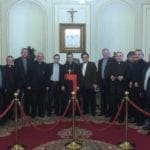
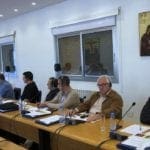
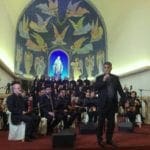
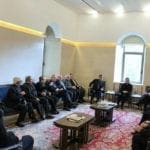
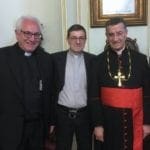
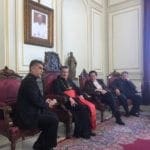
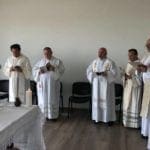

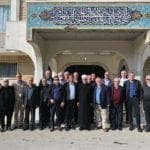
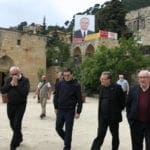
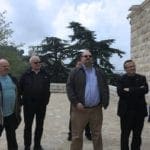
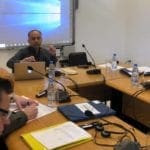

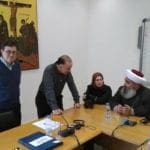
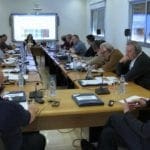
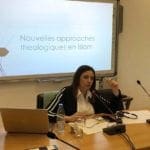
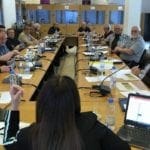
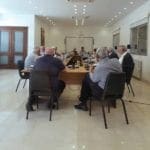
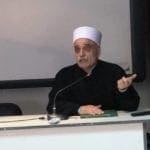
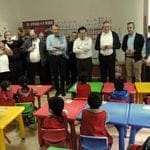
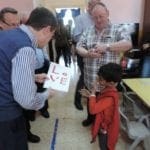
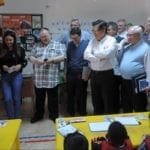

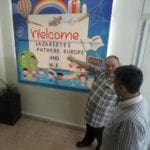
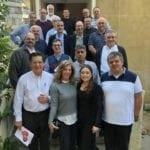




0 Comments